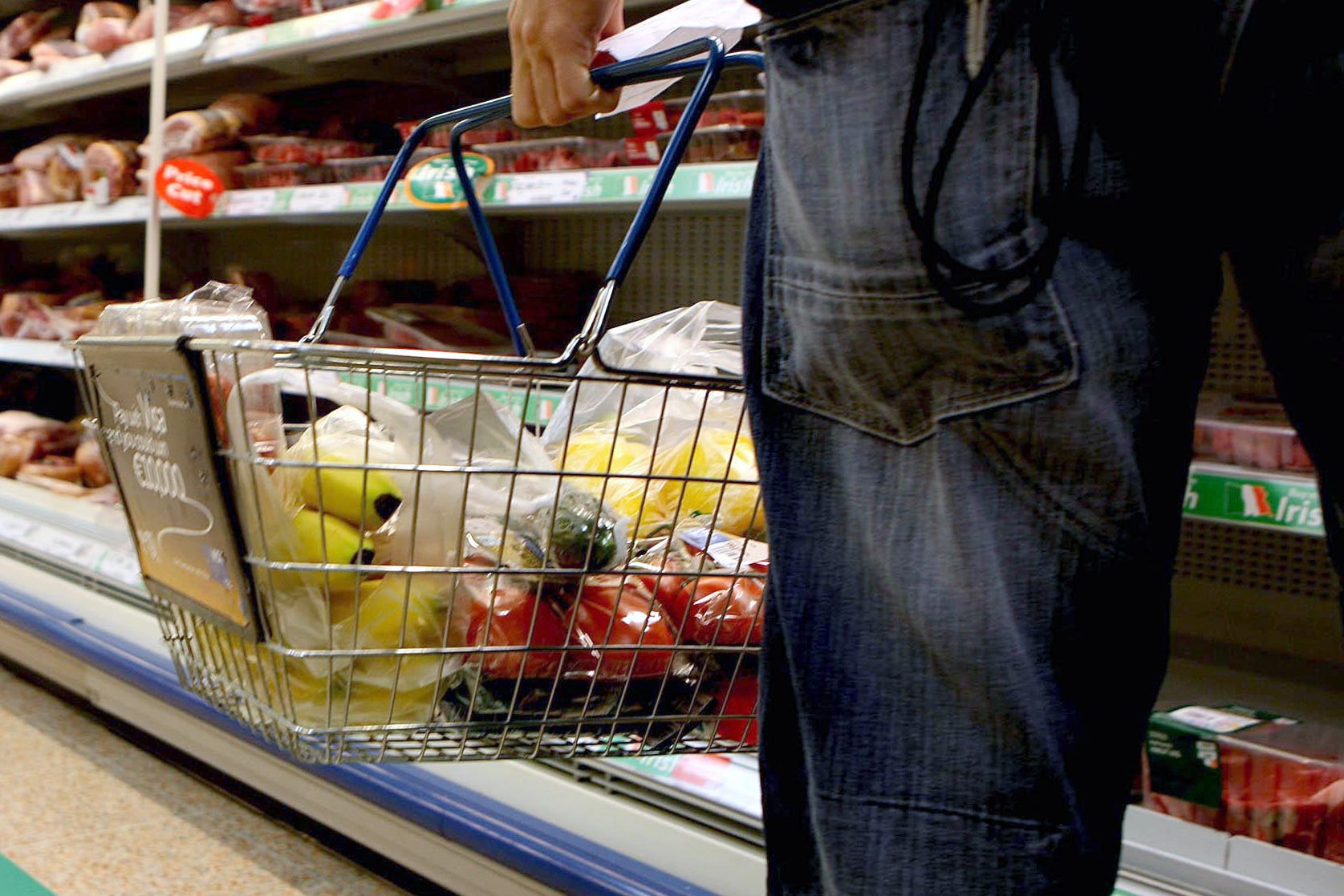Food prices to rise by 4.2% this year amid increased costs, industry warns
The BRC said there was ‘little hope of prices going anywhere but up’ amid higher national insurance, National Living Wage and packaging costs.

Your support helps us to tell the story
From reproductive rights to climate change to Big Tech, The Independent is on the ground when the story is developing. Whether it's investigating the financials of Elon Musk's pro-Trump PAC or producing our latest documentary, 'The A Word', which shines a light on the American women fighting for reproductive rights, we know how important it is to parse out the facts from the messaging.
At such a critical moment in US history, we need reporters on the ground. Your donation allows us to keep sending journalists to speak to both sides of the story.
The Independent is trusted by Americans across the entire political spectrum. And unlike many other quality news outlets, we choose not to lock Americans out of our reporting and analysis with paywalls. We believe quality journalism should be available to everyone, paid for by those who can afford it.
Your support makes all the difference.Food prices will rise by an average of 4.2% in the latter half of the year as retailers battle £7 billion of increased costs from the Budget, the industry has warned.
British Retail Consortium (BRC) chief executive Helen Dickinson said modelling by the trade association and industry chiefs said there was “little hope of prices going anywhere but up” as retailers faced higher national insurance (NI), National Living Wage and new packaging costs.
Ms Dickinson said: “As retailers battle the £7 billion of increased costs in 2025 from the Budget, including higher employer NI, National Living Wage, and new packaging levies, there is little hope of prices going anywhere but up.
“Modelling by the BRC and retail chief financial officers suggest food prices will rise by an average of 4.2% in the latter half of the year, while non-food will return firmly to inflation.
“Government can still take steps to mitigate these price pressures, and it must ensure that its proposed reforms to business rates do not result in any stores paying more in rates than they do already.”
Shop price deflation is likely to become a thing of the past
The latest BRC-NielsenIQ Shop Price Index shows shoppers benefited from a December marked by lower inflation than last year and bigger discounts amid warnings both are likely to “become a thing of the past”.
Shop prices overall were 1% lower in December than a year earlier, a deepening of November’s 0.6% deflation.
Prices of products other than food were 2.4% cheaper in December, the deepest deflation since April 2021, although this was influenced by later Black Friday discounting this year.
Food prices overall were unchanged at 1.8% higher than a year ago – the lowest since November 2021 – as was fresh food inflation at 1.2%, although ambient food inflation edged up to 2.8% from 2.7% in November.
Higher household costs are unlikely to dissipate anytime soon so retailers will need to carefully manage any inflationary pressure in the months ahead
Ms Dickinson said: “Retailers discounted heavily for Black Friday this year as they attempted to make up for weaker sales earlier in the year.
“However, the later Black Friday timing brought many of the non-food discounts into the measurement period, making non-food prices look more deflationary than the underlying trend.
“With food inflation bottoming out at 1.8%, and many price pressures on the horizon, shop price deflation is likely to become a thing of the past.”
Mike Watkins, head of retailer and business insight at NielsenIQ, said: “During December, shoppers benefited from both lower inflation than last year and bigger discounts as both food and non-food retailers were keen to drive sales after a slow start to the quarter.
“However, higher household costs are unlikely to dissipate anytime soon so retailers will need to carefully manage any inflationary pressure in the months ahead.”
The BRC-NielsenIQ report follows figures from analysts Kantar this week showing inflation across supermarkets jumped from November’s 2.6% to 3.7% in December – its highest level since March.